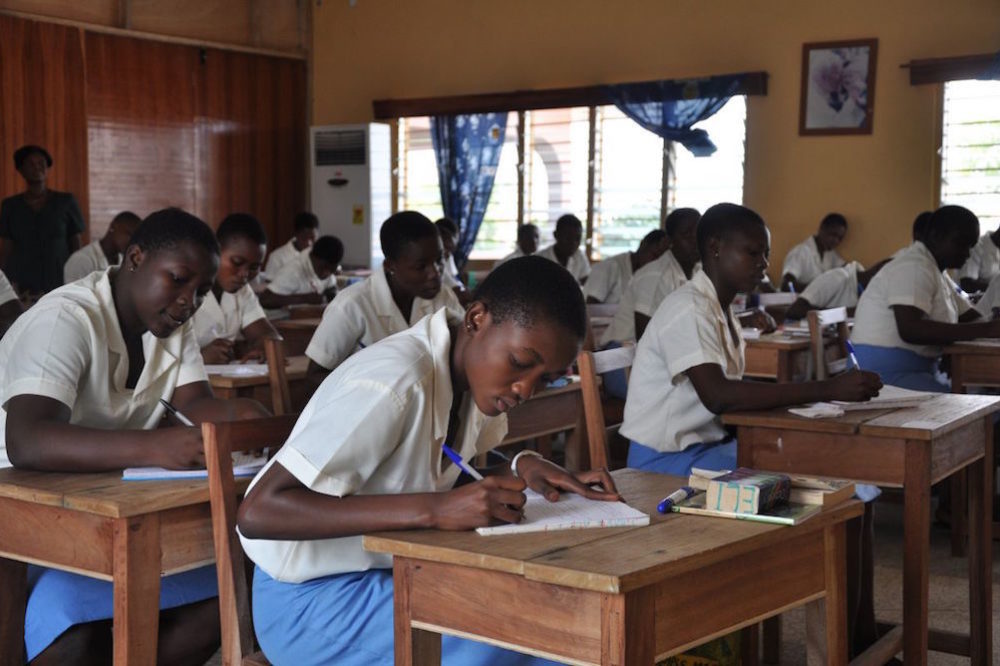Education is the bedrock of national development, and in Ghana, it has played a crucial role in shaping the country’s trajectory.
Over the years, Ghana’s education system has evolved, from the colonial model focused on clerical skills to a more comprehensive system aimed at fostering critical thinking and innovation.
However, significant challenges remain, necessitating reforms to align education with the demands of the 21st century.
Current Structure and Achievements
Ghana’s education system comprises basic, secondary, and tertiary levels. Basic education, which includes kindergarten, primary, and junior high school, is free and compulsory.
Secondary education spans senior high schools (SHS) and technical institutions, while tertiary education includes universities, polytechnics, and colleges of education.
The Free Senior High School (Free SHS) policy, introduced in 2017, has been a milestone in improving access to education. It has enabled thousands of students who might otherwise have been left out to pursue secondary education.
Additionally, Ghana’s emphasis on STEM (Science, Technology, Engineering, and Mathematics) education is commendable, with initiatives like the establishment of STEM-focused high schools and promotion of technical and vocational education and training (TVET).
Ghana has also made strides in increasing literacy rates and closing the gender gap in education, particularly at the basic level. Programs targeting rural and underserved communities have contributed to these successes. However, a deeper analysis reveals systemic issues that require targeted solutions.
Detailed Analysis and Evaluation of Challenges
Quality of Education:
Analysis: Despite increased access, the quality of education remains inconsistent. Schools in urban areas often outperform their rural counterparts due to better resources and infrastructure. Teacher-student ratios are disproportionately high in many public schools, leading to diminished individual attention for learners.
Evaluation: To improve quality, there needs to be a concerted effort in teacher training and the provision of teaching aids. Countries like Finland have shown that teacher competency directly correlates with student success.
Mismatch with Industry Needs:
Analysis: Ghana’s curriculum is heavily theoretical and does not equip students with practical skills. Industries have reported that graduates lack job readiness, particularly in fields like ICT, manufacturing, and entrepreneurship.
Evaluation: Introducing vocational training and internships at the secondary and tertiary levels can bridge this gap. The German dual-education system offers a model for integrating academic learning with practical work experience.
Infrastructure Deficits:
Analysis: Schools in rural areas lack basic facilities such as libraries, laboratories, and computers. Urban schools fare better but often face overcrowding.
Evaluation: Investments in infrastructure must prioritize underserved areas. Partnerships with private sectors can fund innovative projects, such as mobile libraries or solar-powered classrooms.
Teacher Motivation:
Analysis: Low wages and limited career growth opportunities contribute to poor teacher retention rates. Teachers in remote areas are particularly disadvantaged.
Evaluation: Teacher excellence initiatives, as seen in Singapore, where educators are highly paid and professionally developed, could inspire long-term commitment.
Inequality in Access:
Analysis: Children with disabilities, girls in rural communities, and economically disadvantaged families face significant barriers to education. Cultural norms and poverty often exacerbate these challenges.
Evaluation: Policies such as conditional cash transfers and community engagement programs can address these disparities. Rwanda’s inclusive education model offers practical insights.
Proposed Solution for the New Government
To address these challenges and revolutionize Ghana’s education system, the new government should implement a transformative strategy centered on the following key pillars:
Establish an Education Reform Task Force:
Conduct a nationwide audit of education challenges.
Collaborate with international experts to benchmark best practices.
Adopt a Dual-Track Educational System:
Introduce academic and technical tracks in secondary schools.
Align technical education with industry demands by forming partnerships with businesses.
Incorporate Innovation, Creativity, and Entrepreneurship at the Basic Level:
Develop a curriculum that emphasizes design-thinking, innovation, and entrepreneurial skills from early childhood.
Engage students in project-based learning, such as creating prototypes, starting small businesses, or solving real-world problems.
Introduce “Young Innovators Clubs” in schools to encourage collaborative projects and competitions.
Provide teacher training focused on fostering creativity and guiding entrepreneurial activities.
Create Regional Education Hubs:
Equip these hubs with cutting-edge facilities to serve as regional centers of excellence.
Promote knowledge sharing and competition among these hubs to elevate standards nationally.
Implement a Digital Education Strategy:
Expand internet connectivity to rural schools.
Provide students with digital devices and e-learning platforms.
Train teachers in integrating technology into pedagogy.
Institute Teacher Excellence Programs:
Offer scholarships for teacher training in specialized fields.
Establish mentorship programs to guide early-career educators.
Introduce Outcome-Based Funding:
Tie government funding to performance indicators, such as graduation rates and skill acquisition.
Encourage schools to innovate to meet these goals.
Strengthen Public-Private Partnerships:
Incentivize businesses to invest in education through tax breaks.
Develop co-branded projects, such as science labs sponsored by tech companies.
Empower Local Communities:
Train community leaders to manage school resources efficiently.
Involve parents and local groups in decision-making processes.
Prioritize Inclusive Policies:
Develop tailored programs for marginalized groups.
Ensure that all new schools are disability friendly.
Monitor and Evaluate Progress:
Create an independent monitoring body to assess reform outcomes annually.
Publicly report findings to ensure transparency.
Conclusion
Ghana’s education system holds immense potential to drive socio-economic transformation. By implementing these bold and forward-thinking solutions, including fostering innovation and creativity within the curriculum, the new government can lay the foundation for an inclusive, high-quality, and future-ready education system. This collective effort will not only empower individuals but also position Ghana as a global leader in education and innovation.
The author, Dr Joseph Kwadwo Danquah is an Assistant Professor of Human Capital Development, Innovation, and Entrepreneurship, University of Bradford – UK.
DISCLAIMER: The Views, Comments, Opinions, Contributions and Statements made by Readers and Contributors on this platform do not necessarily represent the views or policy of Multimedia Group Limited.


